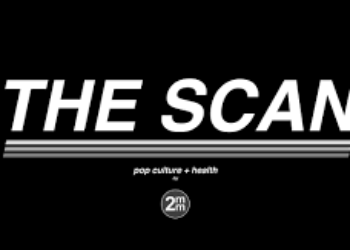4CMenB vaccine ineffective in reducing carriage prevalence of disease-causing meningococci
1. In this cluster-randomized trial involving Australian adolescents, administration of 4CMenB did not result in lower prevalence of carriage of any disease-causing genogroup of N. meningitidis at 12 months.
2. While 4CMenB may decrease the likelihood of late cases in outbreaks, its ineffectiveness in reducing transmission means that antibiotics remain a necessary measure for elimination of carriage.
Evidence Rating Level: 1 (Excellent)
Study Rundown: Meningococcal disease has a rapid progression and a high case fatality rate with the highest incidence in infants and young adults. While the relationship between asymptomatic carriage and risk of disease is not well characterized, it is hypothesized that reducing carriage prevalence in adolescents could confer some degree of indirect protection upon vulnerable persons, especially unvaccinated infants. The vaccine 4CMenB has been shown to be protective in infants and toddlers for at least two years, but its effects on carriage of disease-causing meningococci are unknown. This study found that, in secondary school students, administration of 4CMenB resulted in no significant difference in carriage prevalence at 12 months. Additionally, no between-group differences were observed in any prespecified secondary outcomes such as the prevalence of carriage of individual genogroups and acquisition of carriage. However, a number of risk factors were identified, including later year of schooling, smoking, and participation in intimate kissing. These findings are consistent with those of previous studies in which reduction of carriage occurred mostly in group Y with little effect on group B carriage. Strengths of this study were randomization at the school level, real-world design, and high retention and adherence. Some limitations were the lower-than-anticipated prevalence of carriage at 12 months and the use of a single outcome measure.
Click here to ready the study in NEJM
Relevant Reading: Meningococcal B vaccine (4CMenB): the journey from research to real world experience
In-Depth [randomized controlled trial]: In this cluster-randomized study, 24269 students from 237 secondary schools in Australia were assigned to receive 4CMenB vaccination either at baseline or at 12 months. Stratification factors were school size and school socioeconomic status, and at baseline, the characteristics of participants were similar between groups. There was no significant difference in the primary outcome of carriage prevalence of disease-causing N. meningitidis between the intervention group (326 of 12,746 students [2.55%]) and the control group (291 of 11,523 students [2.52%]) at 12 months (adjusted odds ratio [OR], 1.02; 95% confidence interval [CI], 0.80 to 1.31; P=0.85). No between-group differences were observed in carriage of any genogroups, but identified risk factors included later year of schooling (adjusted OR for year 12 vs. year 10, 2.75), current upper respiratory tract infection (adjusted OR, 1.35), cigarette smoking in the past week (adjusted OR, 1.91), water-pipe smoking in the past week (adjusted OR, 1.82), attending pubs or clubs in the past week (adjusted OR, 1.54), and participation in intimate kissing in the past week (adjusted OR, 1.65). Overall vaccine coverage among South Australian students was 62%. No association was discovered between coverage and outcomes in schools. No cases of meningococcal B disease were observed during the trial period or to date, and adverse events occurred in <0.5% of participants.
Image: PD
©2020 2 Minute Medicine, Inc. All rights reserved. No works may be reproduced without expressed written consent from 2 Minute Medicine, Inc. Inquire about licensing here. No article should be construed as medical advice and is not intended as such by the authors or by 2 Minute Medicine, Inc.






